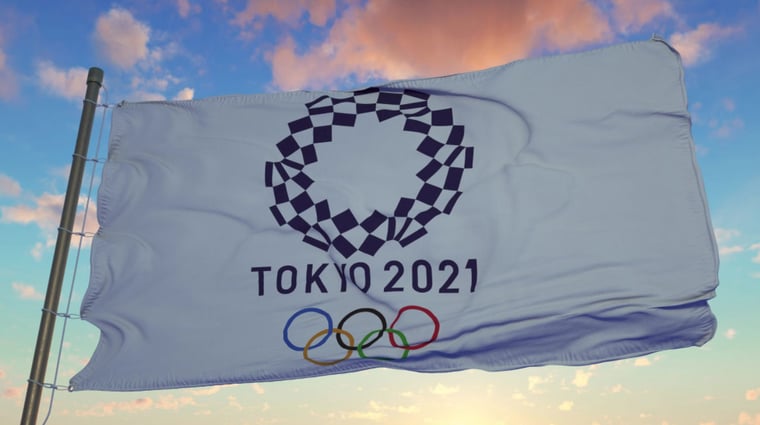
If you didn't know who Simone Biles was before the 2021 Tokyo Olympics you probably do now. A celebrated American great of all time (affectionately known as GOAT in the US), Biles made headlines across the globe this season for what she didn’t do as opposed to what she did.
The 24-year-old gymnast, who has won more medals at international competitions than any other gymnast, surprised the world this summer when she pulled out of several Olympic events due to mounting emotional stress.
Her actions highlight a changing culture where winning at all costs is fast losing ground to self-care and wellbeing. Such actions are having a rippling affect beyond the sports arena – and many companies are beginning to pay attention.
The old narrative
In a fitting comparison, Biles’ story has been paralleled to that of fellow US gymnast Kerri Strug. The two stories compellingly illustrate the changing narratives and increased importance placed on mental health and wellbeing.
In the 1996 Atlanta Olympics, Strug’s coach pushed her to get up and perform the vault again, after she had crushed her ankle on a bad landing.
“You can do it!” were the words of encouragement (or commanding depending on how you look at it) that preceded Strug throwing herself over the horse, making a perfect landing, saluting the judges, and collapsing in pain. The team won gold, but Strug never competed again.
For years afterwards, Strug and her coach were idolised. Their combined performance was a perfect demonstration of the “can do” (or more accurately “must do”) mentality of the 80s and 90s. Strug for pushing through at all costs, and her coach for squeezing the most out of her.
And this approach was pretty evident across sectors, where compromising and sacrificing oneself were hailed as qualities of champions, and everything else was considered weak or a failure.
But this mind set is starting to change.
The new way
Some years later, faced with a similar decisive moment to Strug, Biles took a completely different path.
She later explained that her body felt disconnected to what her mind was telling it to do. So, for her own safety she decided to opt out. In other words, she valued her own wellbeing ahead of any medals or honours.
Biles isn’t the first to make such a move. Most notably, tennis player Naomi Osaka, also withdrew from the French Open in June to protect her mental health.
The choices made by these high-profile athletes are forcing conversations about where the line for selflessness should be drawn – be it for sports or for your company.
A study on elite athletes in fact found that competitors with a win-no-matter-what philosophy had lower levels of life satisfaction than their peers, and higher levels of anxiety and depression.
Companies are listening
The stories of these athletes are not exclusive to the sports world. While most of us may not be tracked or followed by the world’s media, many will have experienced or been through similar situations at work. So, it’s no wonder that these stories have resonated strongly with audiences.
While some may have called Biles a selfish quitter most hailed her actions. According to Mashable, data from Reputation, a company that gathers and analyses consumer feedback from digital platforms, found that the vast majority of shared and liked posts were supportive of the gymnast.
And this shift has not gone unnoticed by some major businesses.
In August, sports brand Nike gave its head office staff a week off to “destress”. It encouraged workers to leave work responsibilities to aid their mental health.
Earlier in the year, global investment bank Citigroup banned work video calls on Fridays to help employees break free from the “relentlessness of the pandemic workday” and designated 28 May as a company-wide holiday.
But are such one-off events enough to ensure the longer-term mental wellbeing of employees?
It’s the culture that counts
While initiatives shown by the likes of Nike or Citigroup are welcome, many wellbeing experts argue that it is the broader system and culture we exist in that shapes our choices and behaviour – and therefore our wellbeing.
Norwegian Business School BI carried out an analysis of 72 studies, involving over 80,000 participants, to find that employees in organisations with less hierarchical settings, that featured mentoring or other human resources programs to support their health and performance, reported higher wellbeing.
Meanwhile, researchers at The Wellbeing Project go further to argue that leaders who not only advocate and model self-care, but actively engage team members to give their input in wellbeing learning, create healthier and more effective organisations: “When leaders and staff learn to stand together in their own humanity and create a culture of wellbeing, they’re more equipped to fulfill their mission.”
Such environments allow people to feel safe putting their mental and physical health first.
The outpouring of support for the athletes came in its millions. And those same millions will likely be setting new terms to safeguard their own wellbeing – whether that’s on a pitch or in the workplace.
Business leaders will do well to keep paying attention.

